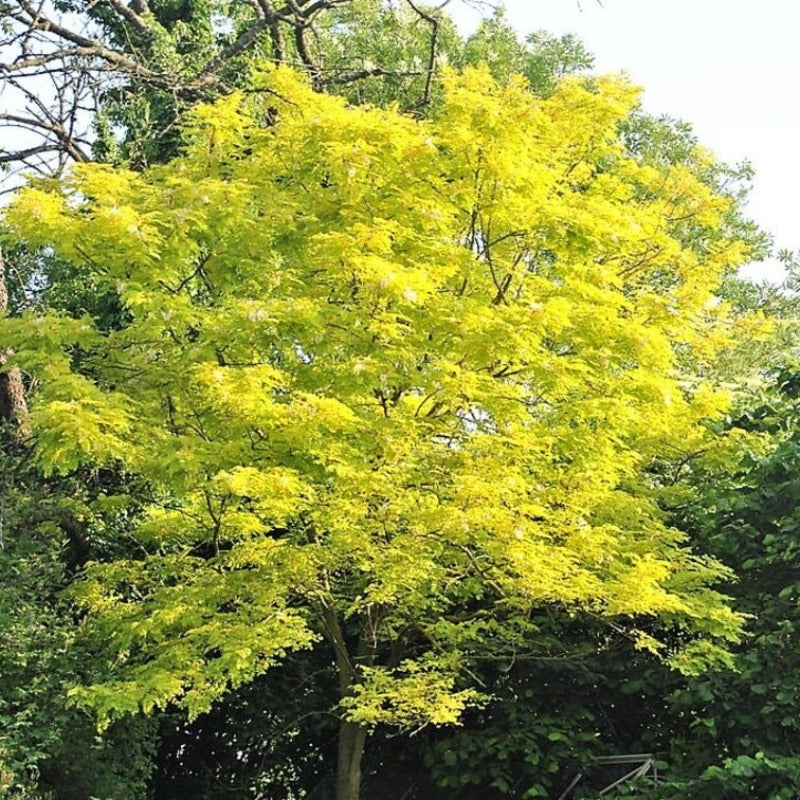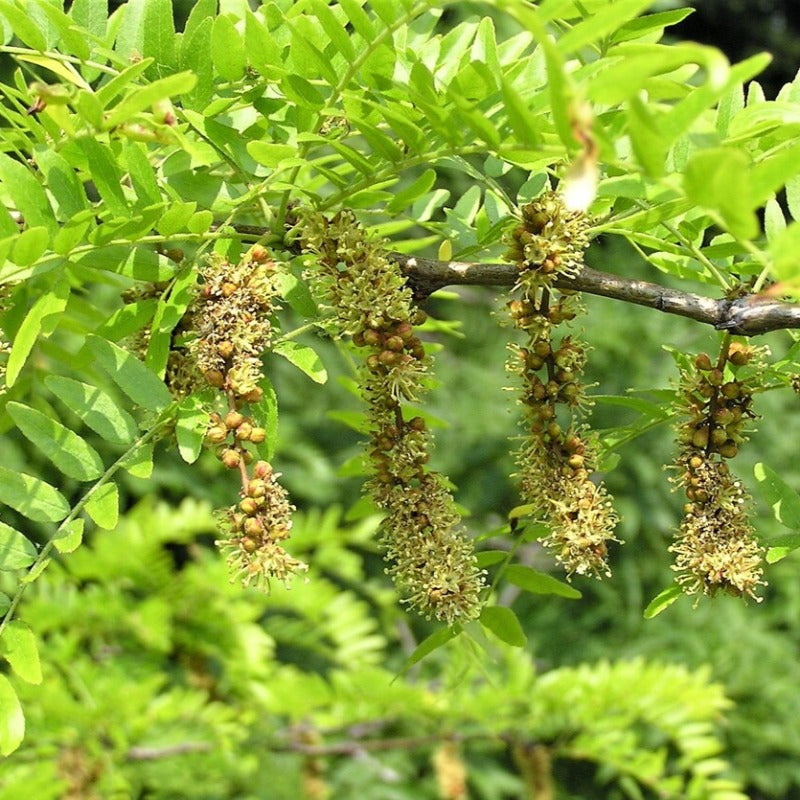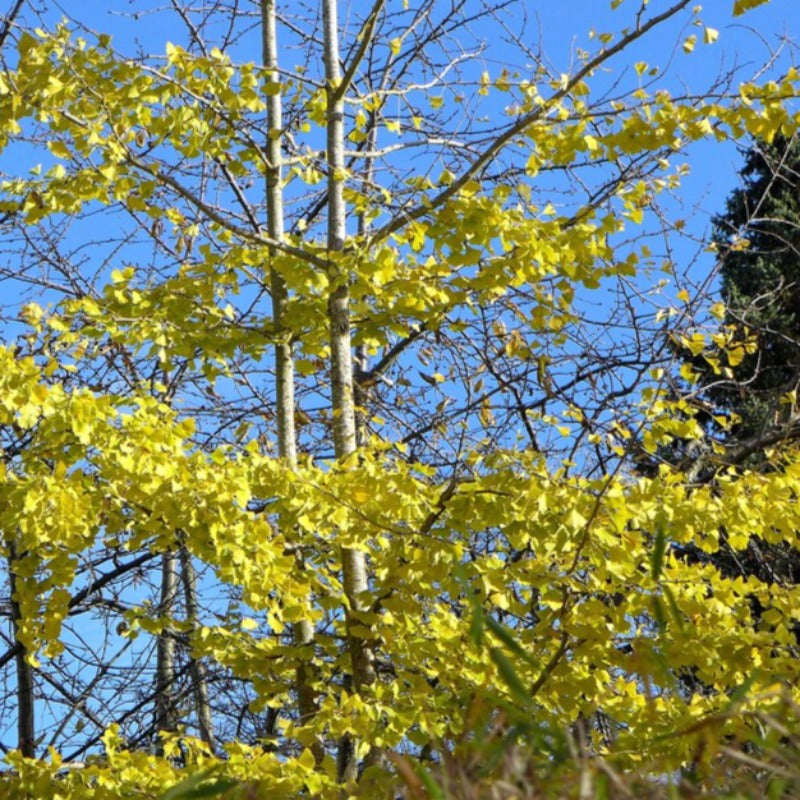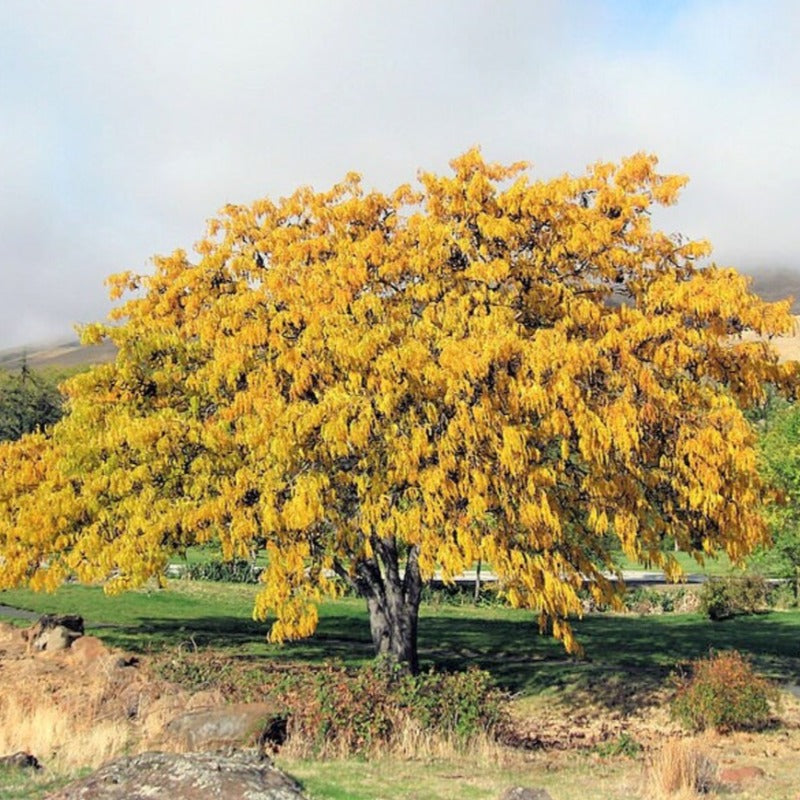- Historical context: The Honey Locust tree (Gleditsia triacanthos) is native to central North America. The thornless variety, Gleditsia triacanthos var. inermis, was developed to eliminate the large, sharp thorns that are characteristic of the species.
- Geographical origination: The Honey Locust tree is originally from the central United States, particularly the Mississippi River Valley.
- Relevant cultural significance: The tree has been valued for its rapid growth and adaptability, making it a popular choice for urban landscaping and reforestation projects.
- Time period of discovery: The thornless variety was developed in the early 20th century through selective breeding.
- Original habitat: The original habitat includes river valleys, floodplains, and open woodlands.
- Notable historical uses: Historically, the wood of the Honey Locust was used for fence posts, furniture, and tools due to its hardness and durability. The pods were also used as a food source for livestock.
- Ideal temperature range: The ideal temperature range for growing Thornless Honey Locust trees is between 60°F and 85°F (15°C to 29°C).
- Soil type: They prefer well-drained, loamy soil but can tolerate a wide range of soil types, including clay and sandy soils.
- Sunlight requirements: Full sun is ideal for optimal growth, although they can tolerate partial shade.
- Watering needs: Moderate watering is required, especially during the first few years of growth. Once established, they are relatively drought-tolerant.
- Planting season: The best time to plant Thornless Honey Locust seeds is in the spring or fall.
- Germination time: Germination typically takes 2 to 3 weeks under optimal conditions.
- Growth cycle duration: The tree grows rapidly, often reaching maturity in 10 to 15 years.
- Common pests and diseases: Common pests include webworms, borers, and spider mites. Diseases such as canker and leaf spot can also affect the tree.
- Companion planting advice: Thornless Honey Locust trees can be planted alongside other trees and shrubs that have similar soil and sunlight requirements. They are often used in mixed plantings for windbreaks and erosion control.
- Common challenges and solutions: One common challenge is the susceptibility to pests and diseases. Regular monitoring and appropriate treatments, such as insecticides and fungicides, can help manage these issues. Another challenge is ensuring adequate water during the establishment phase.
- Nutritional values: The pods of the Honey Locust contain seeds that are high in protein and can be used as animal fodder.
- Health benefits: While not commonly used for human consumption, the seeds and pods have been used in traditional medicine for their purported anti-inflammatory and antimicrobial properties.
- Culinary uses: The pods are not typically used in modern culinary practices but were historically used as a sweetener by Native American tribes.
- Medicinal uses: Traditional uses include treatments for sore throats, coughs, and digestive issues.
- Other unique advantages: Thornless Honey Locust trees are highly valued for their ornamental qualities, including their delicate, fern-like leaves and attractive fall color. They are also used in urban environments for their ability to tolerate pollution and poor soil conditions.














